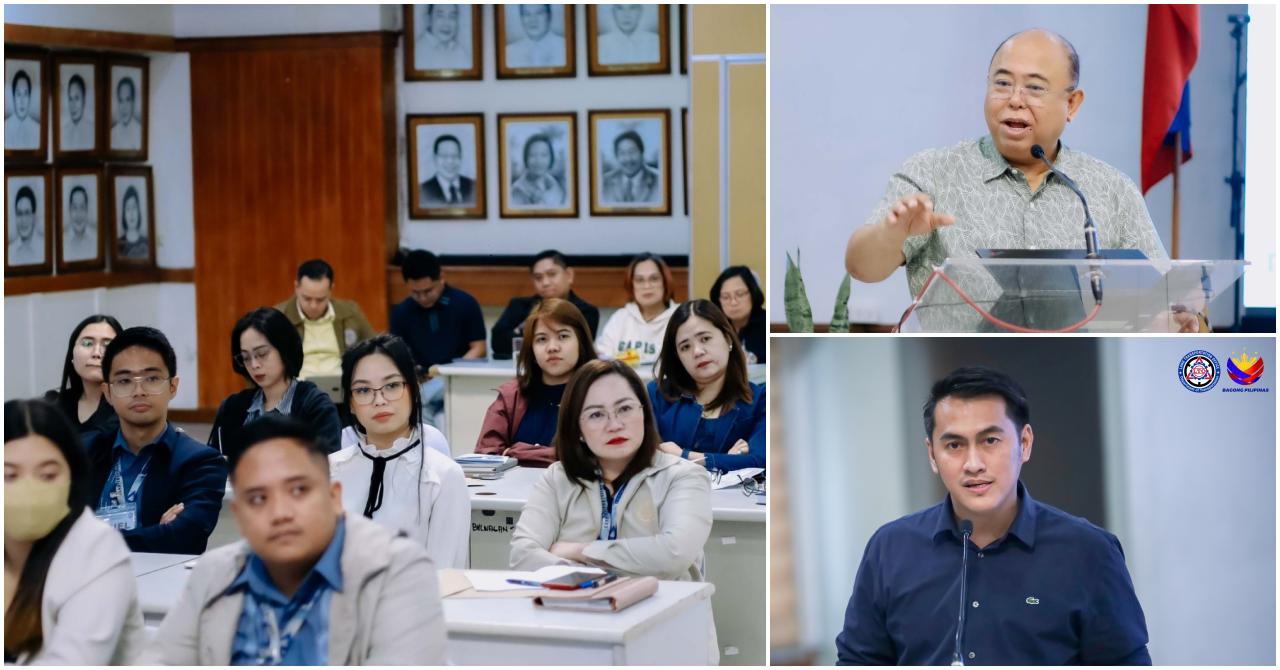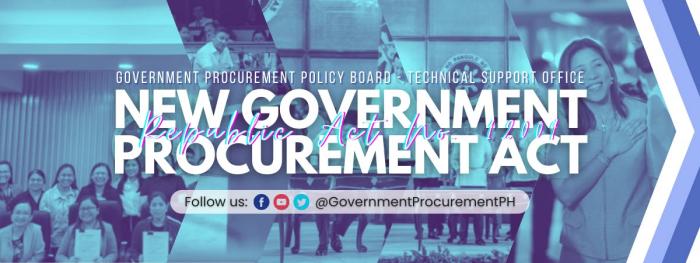The Land Transportation Office (LTO) recently held a training on Republic Act No. 12009, better known as the “New Government Procurement Act” or NGPA. Facilitated by the Procurement Unit and the Learning and Development Unit, the event also tackled the Implementing Rules and Regulations (IRR) of the new legislation.
The NGPA applies to the procurement of goods, consulting services, and infrastructure projects by all Philippine government branches, including the LTO. During the training, procurement practitioners learned about the new legal framework, which focuses on updated modalities and sustainable practices related to procurement.

LTO and the New Government Procurement Act
On July 3-4 and 8, 2025, the LTO conducted a 3-day training on the New Government Procurement Act (NGPA) and its Implementing Rules and Regulations (IRR), according to a press release by the agency.
During the event, LTO Chief Assistant Secretary Atty. Vigor D. Mendoza II gave some welcome remarks, reiterating LTO’s commitment to transparency and accountability in public service.
The training featured two resource speakers from the Department of Transportation (DOTr): Atty. Zenaida B. Bautista-Biteng, Director of Procurement Management Services; and Ms. Armi Cecilia L. Dela Cruz, Chief of the Bids and Awards Committee (BAC) Secretariat Division.
The event ended with some closing remarks from Acting Assistant Secretary Atty. Greg G. Pua Jr., who emphasized the importance of continuous learning and compliance in procurement activities.
What is the NGPA?
What exactly is R.A. 12009 or the New Government Procurement Act (NGPA)? Currently, it is being described as a “landmark” and “game-changing” piece of legislation that streamlines procurement processes of Philippine government offices.
Basically, the new legislation seeks to enhance the existing procurement systems, which are based on R.A. 9184 or the “Government Procurement Reform Act,” enacted in 2003. By enhancing the systems introduced by the 21-year-old law, the NGPA aims to promote transparency, accountability, and efficiency.
Notably, the new law adheres to several principles, namely: professionalism, participatory procurement, proportionality, improved competitiveness, increased efficiency, sustainability, enhanced transparency, and enhanced accountability.
Implementation of the NGPA is overseen by the Government Procurement Policy Board (GPPB), an independent and inter-agency body that includes government and private sector representation.
Objectives of the NGPA
According to the official website of GPPB, R.A. 12009 or the NGPA seeks to attain the following objectives:
1. Introduce Fit-for-Purpose Modalities
In order to achieve the best value for money, procurement efficiency, and quality public services, the NGPA introduces fit-for-purpose modalities so that government offices can accomplish “the most economically advantageous and responsive bids.”
2. Strengthen Procurement Planning
The NGPA aims to strengthen procurement planning by introducing mandatory “market scoping” and employing strategies such as: early procurement activities; life cycle assessment and life cycle costing analysis; engagement of a procurement agent; use of framework agreement; design and build scheme; pooled procurement; and renewal of regular and recurring services.
3. Modernize Procurement Processes
The NGPA promotes the use of modern technologies, applying these to the end-to-end process (i.e. procurement planning to payment of contracts), procurement data analytics, and other activities.
4. Institutionalize Sustainable Principles and Practices
In consideration of environmental and social aspects in the implementation of procurement projects, the NGPA seeks to institutionalize sustainable public procurement principles and practices. This includes developing a “green local market” and “green public procurement,” while also promoting procurement programs that are inclusive and gender responsive.
5. Enhancing Transparency and Accountability
The NGPA aims to enhance transparency and accountability by focusing on open contracting standards and practices, improving public monitoring through observer participation, and using video recording for all procurement-related conferences.
6. Professionalize Procurement Practitioners
Finally, the NGPA seeks to institutionalize the “professionalization” of procurement practitioners by introducing certification courses, setting qualification standards, licensing public procurement practitioners, and establishing a code of ethics for practitioners.

Procurement Activities of the LTO
R.A. 12009 or the NGPA applies to all government agencies, including the LTO. What are some examples of the agency’s procurement activities? For example, LTO offices are typically involved in the procurement of motor vehicles, as well as various goods and services like office supplies, IT equipment, and security services.
More About the GPPB
As mentioned earlier, the implementation of R.A. 12009 is overseen by the Government Procurement Policy Board (GPPB). This is the central body involved in setting strategic directions and making policy decisions with regard to the public procurement activities of all Philippine government offices.
As of this writing, the GPPB is comprised of the following chairperson, alternate chairperson, and members:
- Amenah F. Pangandaman, Secretary of the Department of Budget and Management (DBM), Chairperson;
- Arsenio M. Balicasan, Secretary of the Department of Economy, Planning, and Development (DEPDev), Alternate Chairperson;
- Manuel M. Bonoan, Secretary of the Department of Public Works and Highways (DPWH), Member;
- Gilberto C. Teodoro, Jr., Secretary of the Department of National Defense (DND), Member;
- Juan Edgardo M. Angara, Secretary of the Department of Education (DepEd), Member;
- Juanito Victor C. Remulla, Secretary of the Department of Interior and Local Government (DILG), Member;
- Vivencio B. Dizon, Secretary of the Department of Transportation (DOTr), Member;
- Genmaries S. Entredicho-Caong, Executive Director of the Procurement Service of the DBM (PS-DBM), Member; and
- John Reinier H. Dizon, Representative from the Private Sector, Member.
NOTE: The representative from the private sector is appointed by the President of the Philippines, upon recommendation of the GPPB.
Contact Information: GPPB – Technical Support Office
If you want to know more about the NGPA or R.A. 12009, you can get in touch with the Government Procurement Policy Board (GPPB) – Technical Support Office (TSO) through the following contact details:
Address: Bike Lane, Commonwealth Ave, UP Diliman Campus, Quezon City, Metro Manila
Telephone: (02) 5322 6222
Email: gppb@gppb.gov.ph
Website: https://www.gppb.gov.ph/
Facebook: https://www.facebook.com/GovtProcurementPH
Google Map:
Professionalism, efficiency, transparency, accountability, and sustainability — all of these principles are essential to having an effective public procurement system. Fortunately, thanks to the New Government Procurement Act (NGPA), we can expect all Philippine government offices to abide by these principles!
Speaking of training, the LTO continues to provide essential driving courses to aspiring drivers. Check out this article to learn more about the agency’s Theoretical Driving Course or TDC!